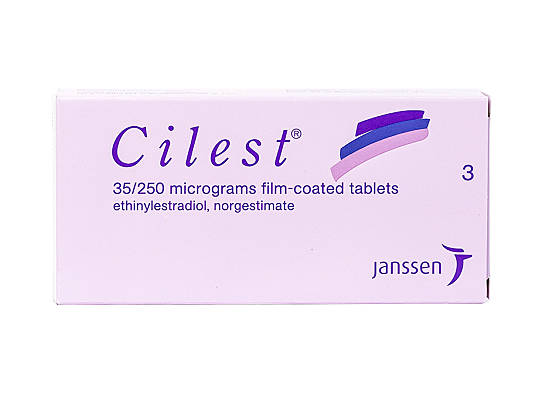Do Antibiotics Affect the Pill?

Medically reviewed by
Dr Kathryn BasfordLast reviewed: 21 Mar 2022
Can antibiotics make birth control less effective?

If you’re taking antibiotics and the pill you may be worried that you’re not protected from pregnancy. Or maybe you’re wondering whether the pill might affect how your antibiotics will work.
Do antibiotics affect the pill?
In general, antibiotics don’t affect the contraceptive pill. So you normally won’t need to use additional contraception while taking antibiotics.
These are some of the most common antibiotics – and you don’t need to worry about any direct effects on your contraception if you’re taking them:
- amoxicillin
- penicillin
- nitrofurantoin
- flucloxacillin
- metronidazole
- trimethoprim
But, all antibiotics can cause side effects, which can then affect how well the pill works, such as:
- diarrhoea
- vomiting

No results found.
Please check your spelling or try another treatment name.
When can antibiotics affect your birth control?
Antibiotics can directly affect birth control if you’re taking:
- rifampicin
- rifabutin
These antibiotics are usually used to treat specific conditions. So your antibiotics might affect your birth control if you’re getting treatment for:
- tuberculosis (TB)
- meningitis
- methicillin-resistant staphylococcus aureus (MRSA)
If you’re not being treated for these conditions, you’re probably not taking either of these antibiotics. So, your birth control should work just as well as normal, unless you have other side effects or symptoms (vomiting or diarrhoea).
Why do these these antibiotics affect the pill while others don’t?
- Rifampicin and rifabutin are what’s known as “enzyme-inducing” antibiotics: they increase the enzyme levels in the body
- Enzymes in the body speed up some chemical reactions
- As a result, the way your body processes hormonal contraception like the pill is also sped up
- So, you will have lower levels of oestrogen and progestogen in your blood: these are the chemicals that make your pill work
If you’re taking either of these antibiotics, you should use an extra contraception method to prevent pregnancy, like a condom. If your prescribed antibiotics aren’t enzyme-inducing (not rifampicin or rifabutin), there’s usually no need to use extra contraception.
If the infection they’re treating causes vomiting or diarrhoea, you’ll need to use an extra form of contraception, like a condom. If you vomit or have diarrhoea within two hours of taking your pill, then you won’t be protected against pregnancy because your body won’t have absorbed it. So you should take another pill straight away. If you’re not ill after this time, you’ll be protected and should take your next pill at the usual time.
If you’re still ill, your protection may be affected, and you may need to consider additional contraception.
Can you get pregnant on antibiotics?
Yes, you can get pregnant while taking antibiotics, especially if you’re taking “enzyme-inducing” antibiotics or if you’re experience vomiting and/or diarrhoea.
Antibiotics won’t stop you getting pregnant, and with any contraceptive, there’s always some risk of pregnancy, even when used perfectly.
When using most antibiotics, your pill will still reduce your risk of pregnancy, like it normally does, as long as you’re not:
- taking rifampicin or rifabutin
- vomiting or having diarrhoea
If you’re taking rifampicin or rifabutin, the best way to be protected is to choose another method of contraception, like:
- Condoms
- A progesterone injection
- An IUD (intrauterine device)
- An IUS (intrauterine system)
What happens when you’re on the pill and you start antibiotics?
Antibiotics, like all medications, can cause side effects. If you’re using the pill and you start antibiotics, you might get side effects, just the same as if you weren’t on the pill, including:
- Nausea
- Vomiting
- Diarrhoea
- Indigestion
- Bloating
Vomiting and diarrhoea, which can be caused by antibiotics, can make the pill less effective. For example, if you’re prescribed penicillin, then this won’t directly affect the pill unless it causes you to vomit or have diarrhoea.
The symptoms of your infection should improve once you start your antibiotic treatment. If you’re taking your antibiotics, but you feel worse, there’s a chance that they’re not working properly. This won’t be caused by your pill and can happen when taking antibiotics without birth control. You should let your doctor know if this is the case.
If the antibiotics are working, you should finish the course you were prescribed, even if you feel better.
What if you think your antibiotics are affecting your pill?
If you’re prescribed rifampicin or rifabutin and are taking the pill, you should:
- let your doctor know
- consider another contraception method
If you’ve been taking either of these for less than two months and would like to keep taking the pill, you should talk to your doctor.
They may want you to take it differently or advise that you use a condom as well. You’ll need to do this for 28 days after you finish your course of antibiotics, too.
If you’re taking antibiotics and the pill and you’re experiencing vomiting and/or diarrhoea, and:
- if you’ve vomited within 2 hours of taking the pill, just take another pill as soon as you can, and if you’re not sick again, you’ll still be protected from pregnancy. You can then carry on taking your pills at your usual time
- if you continue being sick, you should treat each day as if you’ve missed your pill, and use additional contraception such as condoms until you can start taking your pill again regularly. Missed pill rules are different depending on the type of pill you’re taking, so check with your online doctor or GP if you have any questions
- if you have diarrhoea for more than 24 hours, you should carry on taking your pills as usual, if you can. You should use extra contraception until you’re feeling better and can start taking your pills again. You will need to count each day that you’ve had diarrhoea as if it’s a day you’ve missed your pill
- if you’re taking pills with different hormone levels, such as Qlaira, this advice might be different for you, so make sure you read the information in your pack, and ask advice if needed
Will antibiotics affect your period?
Taking antibiotics shouldn’t affect your menstrual cycle unless you’re taking rifampicin or rifabutin.
If you’re taking either rifampicin or rifabutin, the pill's effectiveness can be reduced, and so they may also cause changes to your period.
If you’ve experienced any of the following while taking antibiotics and the pill, then they may have been caused by your pill:
- spotting
- PMS
- headaches
- migraines
- period pain
If you’re worried, speak to your online doctor, GP or nurse for advice.

Dr Kathryn Basford is an IMC and GMC registered GP who works with our Irish team here at ZAVA. She graduated from the University of Manchester and completed her GP training at Whipps Cross Hospital in London.
Meet our doctorsLast reviewed: 21 Mar 2022
-
DeRossi, S. S. and Hershe, E. V. (2002). Antibiotics and oral contraceptives. Dent Clin North Am, Oct; 46: 653-664. [online] Available at: https://pubmed.ncbi.nlm.nih.gov/12436822/. [accessed 12th May 2021]
-
National Health Service (2016). What if I’m on the Pill and I’m sick or have diarrhoea? [online] Available at: https://www.nhs.uk/conditions/contraception/pill-sick-vomit-diarrhoea/ [accessed 30 November 2018].
-
Simmons, K. B. et al (2018). Drug interactions between rifamycin antibiotics and hormonal contraception: a systematic review. BJOG, Jun; 125: 804-811. [online] Available at: https://pubmed.ncbi.nlm.nih.gov/28694152/. [accessed 12th May 2021]
-
Zhanel, G. G. et al (1999). Antibiotic and oral contraceptive drug interactions: is there a need for concern. The Canadian Journal of Infectious Diseases, Nov; 10: 429-433. [online] Available at: https://pubmed.ncbi.nlm.nih.gov/22346401/. [accessed 12th May 2021}
Contraceptive pills are a reliable way of reducing your risk of getting pregnant from sex. ZAVA offers most common brands of pill, so you can order your preferred brand by visiting our contraceptive pill service page.









